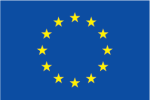In most recent blog post[i] about new paradigms in Research Integrity Anna Armond and Orsolya Varga presented the emerging new topics such as research integrity (RI) in low and middle-income countries (LMIC) and implementation of Hong Kong principles. Hong Kong principles were developed in 2019 “as part of the 6th World Conference on Research Integrity with a specific focus on the need to drive research improvement through ensuring that researchers are explicitly recognized and rewarded for behaviours that strengthen research integrity.”[ii] In this post we present the Hong Kong principles with the emphasis on the practice of open science.
Hong Kong principles were formulated as a tool to support and advance rigorous and transparent practices and ensure that trust in science would not be affected by questionable research practice – QRP (e.g., selective reporting, P-hacking, and hypothesising-after the-results-are-known or HARK-ing.)[iii]. The five Hong Kong principles are as follows: responsible research practices; transparent reporting; open science (open research); valuing a diversity of types of research; and recognizing all contributions to research and scholarly activity.[iv]. Responsible research practices entail formulation of ideas, study design, methodology, execution and dissemination. Transparent reporting emphasizes that all result should be reported, even if the results are negative. Rewarding the practice of open science is aimed at encouraging open access to data, methods and publications. This raises some questions we will discuss further. Acknowledging a broad range of activities means: “creating new ideas; testing them; replicating key findings; synthesis of existing research; developing and validating new tools, measures, or methods; etc.”[v] Last but not least recognizing essential other tasks entails valuing peer reviews for grants and publication, mentoring and outreach.


Leave a Reply